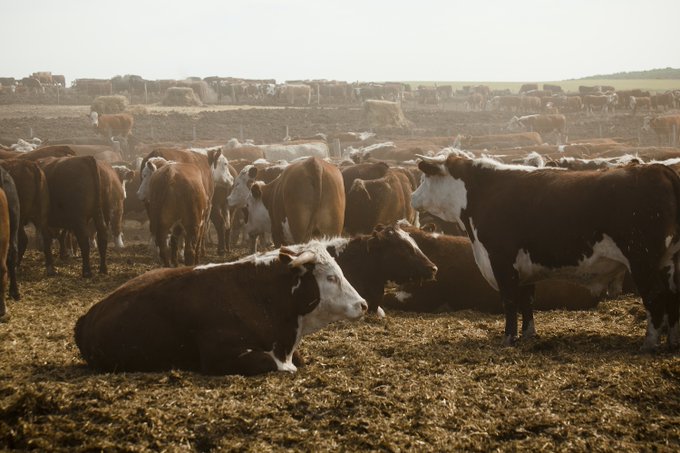Recalls are not uncommon in the modern food industry. As consumers have shifted toward convenience and increasingly done less food processing in their own kitchens, the opportunity for foodborne illness has expanded. One familiar example would be using bagged, previously processed, salad mixes instead of doing the raw chopping, cleaning and rinsing at home. [The risk is listeria (pink mold) or E.Coli]
 A few days ago, when talking about the uptick in industrial accidents, CTH noted, “another downstream consequence could be an uptick in food recalls as an outcome of increased bacteria within the food processing equipment, because the break-down-time, sanitation and hygiene might be impacted by excessive operational run times.
A few days ago, when talking about the uptick in industrial accidents, CTH noted, “another downstream consequence could be an uptick in food recalls as an outcome of increased bacteria within the food processing equipment, because the break-down-time, sanitation and hygiene might be impacted by excessive operational run times.
There’s a myriad of issues from any industrial operation that goes from ordinary capacity to seriously over-stressed maximum capacity… and then remains in the emergency phase for months.”…
Now today: – “Approximately 120,872 pounds of ground beef products have been recalled due to possible E. coli contamination.
According to the U.S. Department of Agriculture’s (USDA) website, Lakeside Refrigerated Services, of Swedesboro, N.J., announced Monday that it is recalling the beef after the problem was discovered during routine testing of imported products produced from Feb. 1 through April 8. (read more)
E.coli comes from bacteria in feces. Sometimes during cattle processing the blade can rupture the internal organs and feces can contaminate the meat. It’s not uncommon.
E.coli bacteria can also be found in row crops. However that usually comes from inadequate personal hygiene of the field workers (I will not detail, tmi).
Bottom line: clean and sanitize raw food (salads, veg,) before eating, and cook all meat proteins to an internal minimum temperature of 145° to kill any foodborne bacteria before consumption.
Even when/if E.coli bacteria is present in meat (not uncommon), it does not survive cooking temperatures above 145°.
When most people have a bout of foodborne illness, commonly referred to as food poisoning, the focus is usually on the beef, pork or chicken as the culprit. However, most foodborne illnesses are caused by vegetables, not protein, because they are consumed raw. Spouts and leaf items are common bacteria carriers, but the least understood risk is actually from potatoes.
Potatoes should always be washed if cooked with the peel (ie baked), because the external soiled bacteria can transfer into the center when pierced with a fork as frequently done as people prep/test during cooking. Bacteria can transfer from the exterior of a potato into the center where a nice warm moist environment exists, perfect for growth.
Just an fyi, handle/cook potatoes as you would handle/cook meat. [USDA Recall Sheet Here]

